
Bridging the Gap against Social Isolation

The Tech Innovate Challenge
The Tech Innovate Challenge was an extended hackathon focused on reducing social isolation among older Australians through innovative technology solutions.
The Problem
Social isolation among seniors is a critical issue influenced by various factors such as living alone, being divorced, separated, or widowed, chronic illness, mobility issues, and the loss of family or friends.
This isolation in seniors has significant health implications including mental health, physical health conditions, cognitive decline and immune function.
The technology barrier for seniors can significantly contribute to social isolation by limiting their ability to connect with others and engage with the wider community. While technology has the potential to reduce isolation by facilitating communication and interaction, many seniors struggle with adopting these technologies due to a lack of familiarity, training, and support. This gap in digital literacy among older adults means they are less likely to benefit from the social connectivity that technology can provide.
|
|
|
|
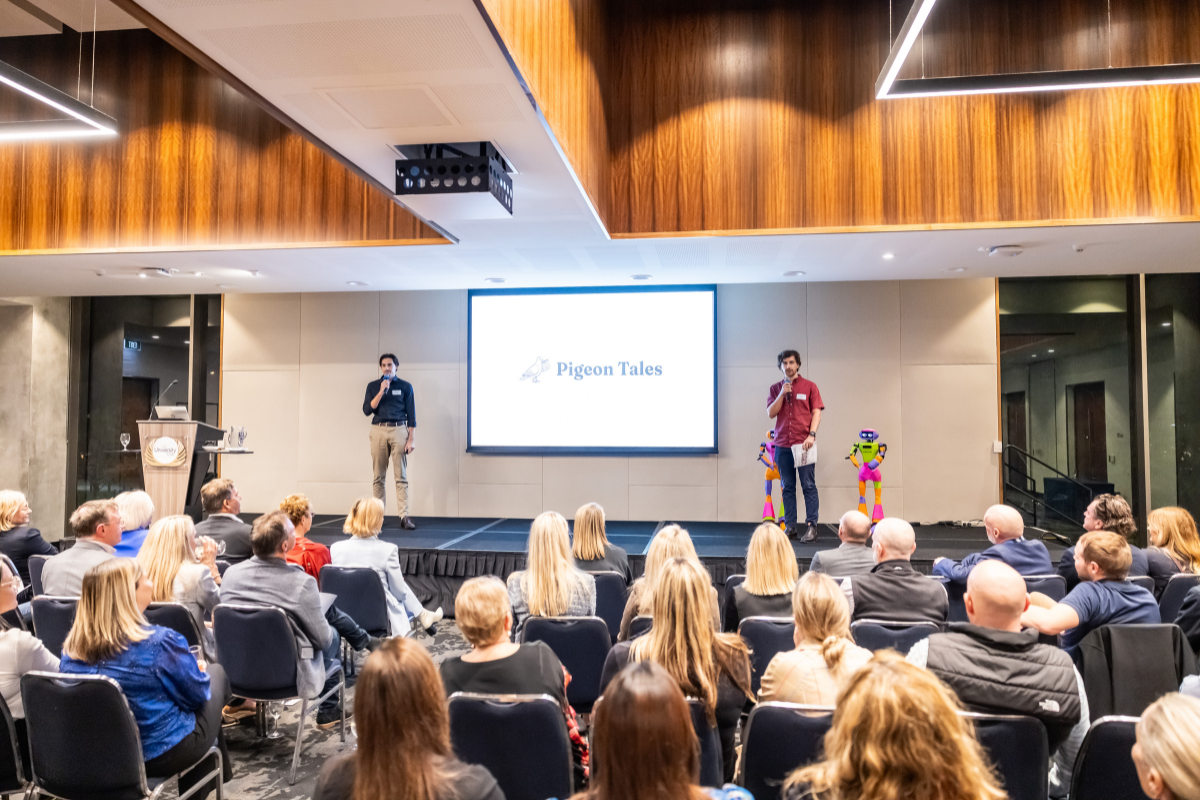
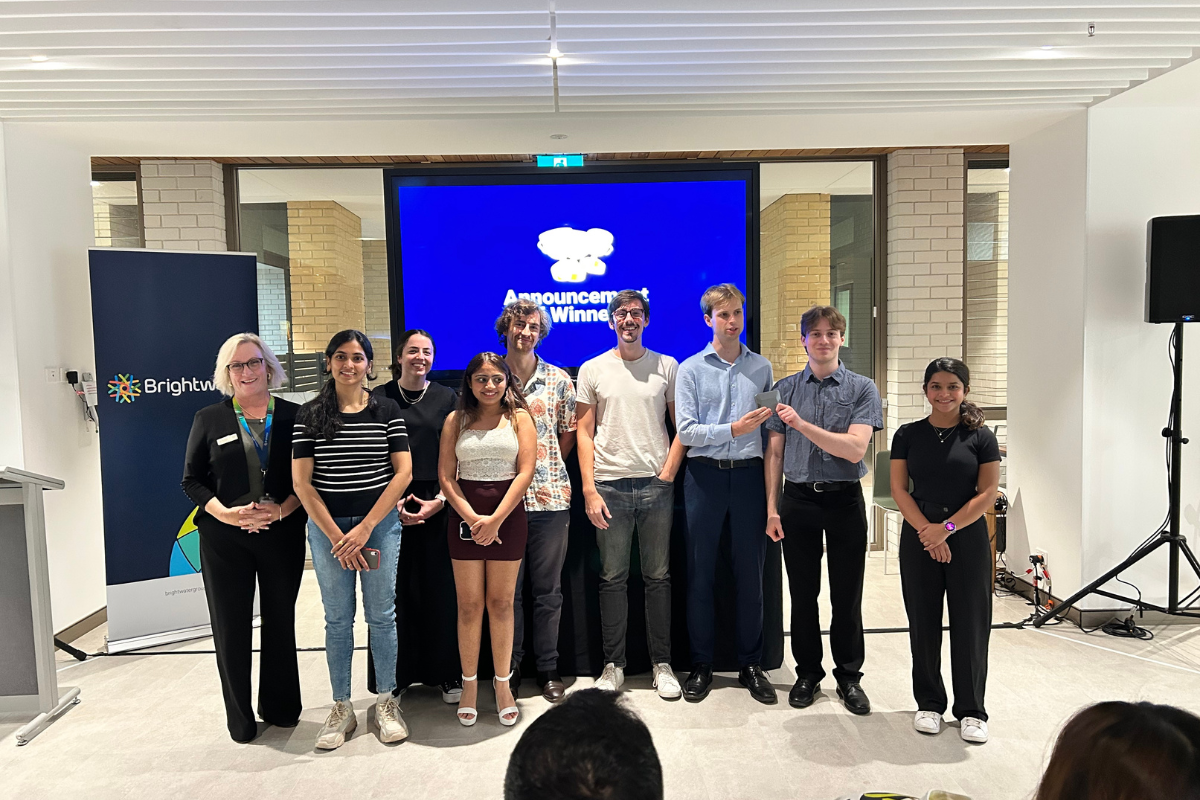
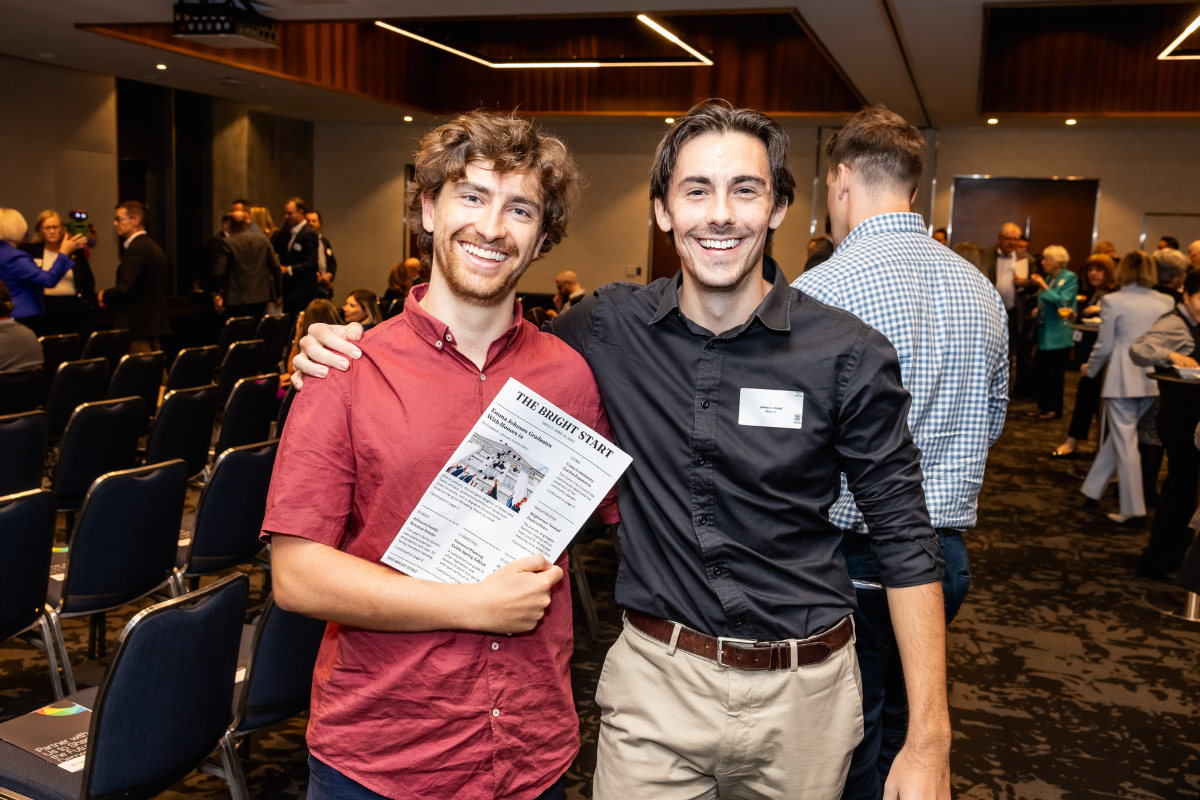
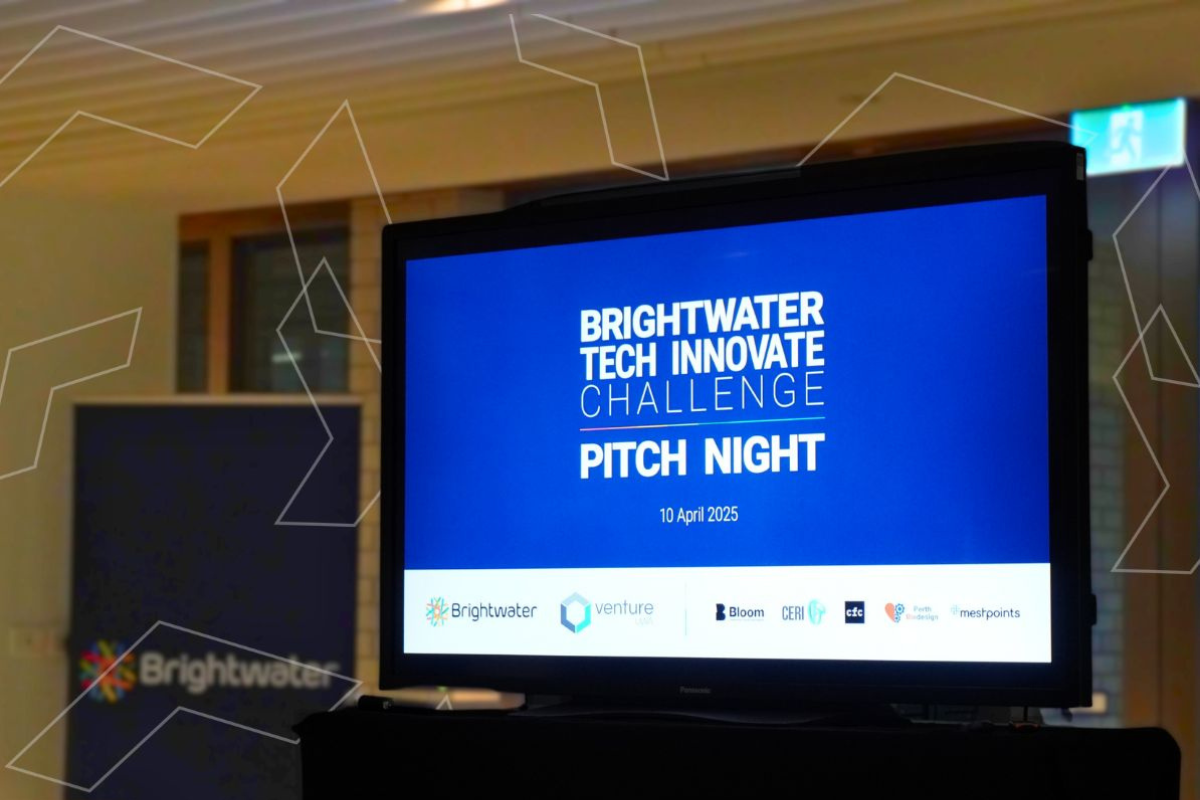
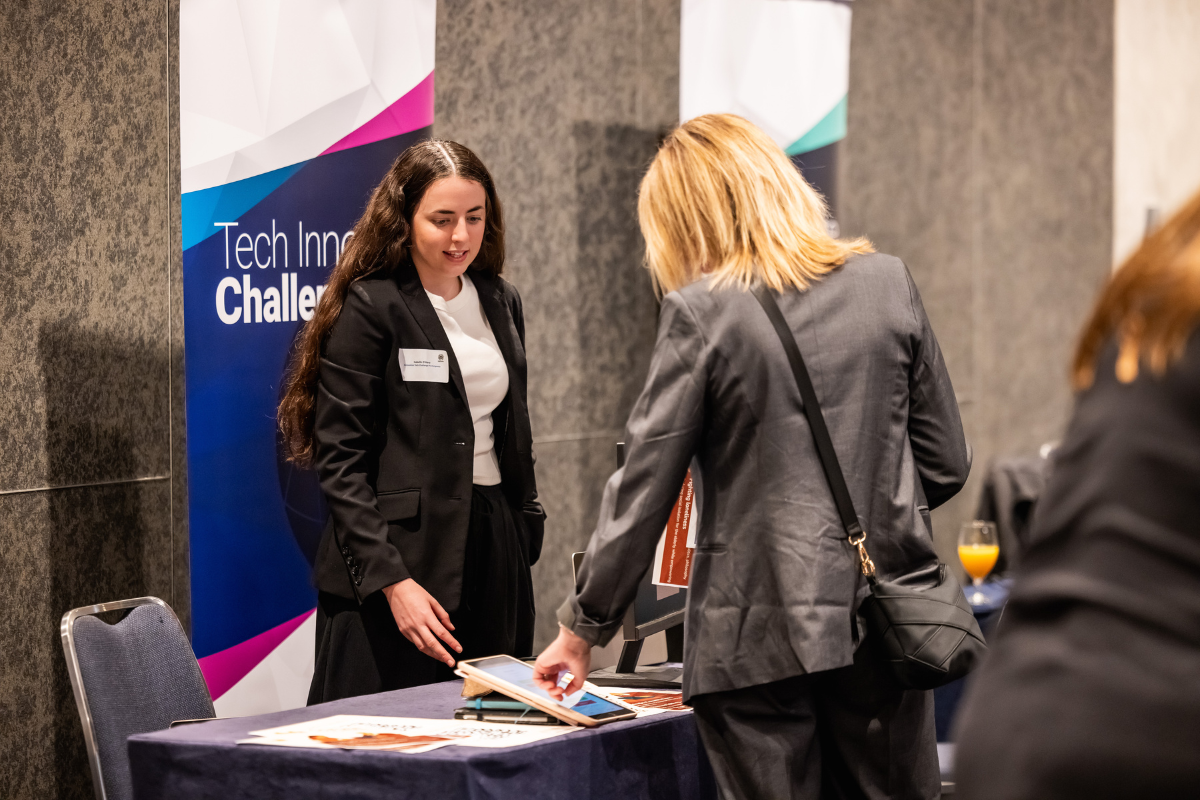
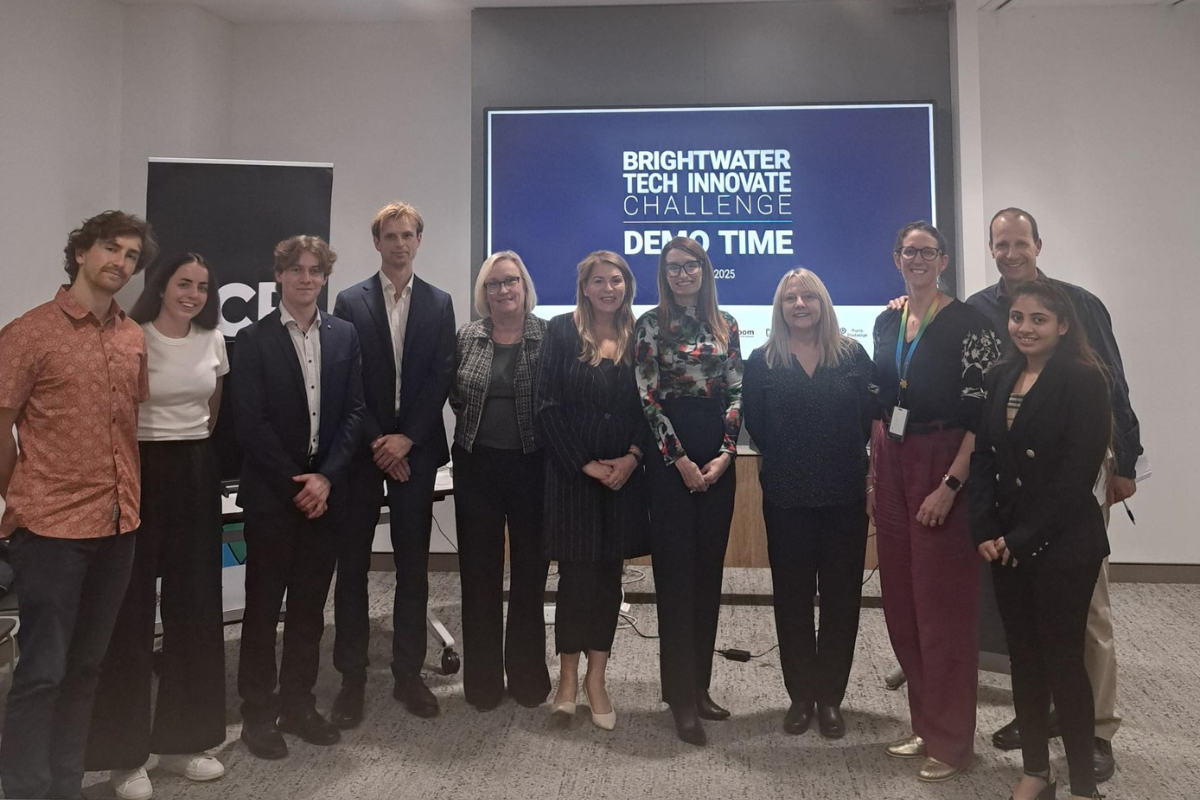
Hacking Social Isolation
The Brightwater Tech Innovate Challenge brought together over 100 innovators, students, start-ups, researchers and aged care professionals to co-design solutions addressing social isolation amongst seniors.
Over four months, participants were guided through the development of practical solutions, including:
- Workshops on Human-Centred Design Thinking
- Resident Interviews
- Rapid Prototyping
- Pitch Presentations
The workshops culminated into viable prototypes and a pitch night to determine who took home the final two prizes.
The Winning Solutions
| Solution |  |
 |
| Description | Pigeon Tales bridges the communication gap between generations. It transforms social media posts from family members into a printed, personalized newspaper—delivering curated moments straight to older Australians who may not use digital platforms. By turning fragmented digital content into a cohesive, tangible experience, Pigeon Tales reconnects families and brings the warmth of everyday stories back into older loved ones’ lives. | Affinity Cube makes staying connected as easy as turning on the TV. Designed to reduce social isolation among older Australians, this plug-and-play device connects directly to a senior’s television, enabling effortless video calls with family and friends. With simple scheduling features and a remote-free interface, Affinity Cube lowers the barrier to meaningful face-to-face interaction—bringing loved ones into the living room, no tech skills required. |
The Brightwater Tech Innovate Challenge was supported by:
The challenge was made possible by Meshpoints, an initiative supported by Lotterywest and Spacecubed, which exists to build a stronger culture of entrepreneurship and innovation in WA.
We thank our program partner Venture UWA for their support.
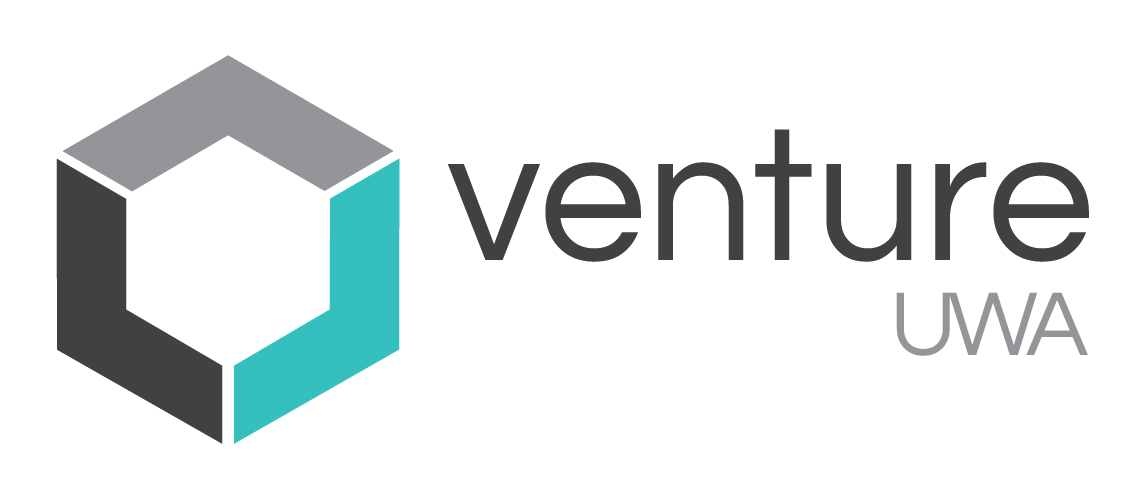
 |
 |
 |
 |
 |
About Brightwater
Thrive, connect & belong
We create communities where people connect and belong, thriving through progressive and responsive care.
Whether in your own home, or one of ours, we keep you connected to what matters most, in the communities you belong so you can thrive.
Neurological specialists
As specialists in acquired and progressive neurological conditions we support people living with Brain Injuries, Dementia, and Huntington's Disease to reach their full potential. Designing bespoke programs and world leading homes including BrightRespite, Piara Waters Huntington's Disease and Oats Street brain rehabilitation, to provide innovative care and a pathway to greater independence.
Responsibility for research & innovation
We are the only WA aged care and disability provider with a dedicated Centre for Research & Innovation – a hub of discovery, collaborating with national and international universities to find innovative solutions to improve the quality of lives of our clients.
Not-for-profit since 1901
For over 100 years, we’ve been there for West Australians from all walks of life. With humble beginnings in Subiaco, today we provide services all across Perth.


